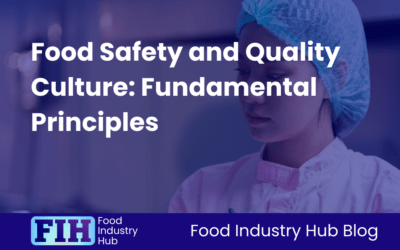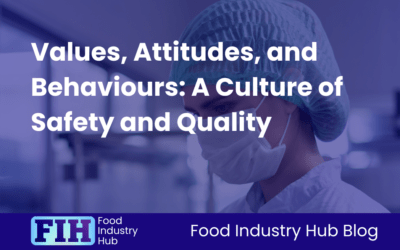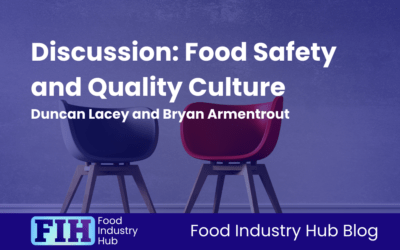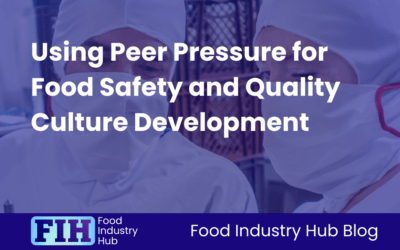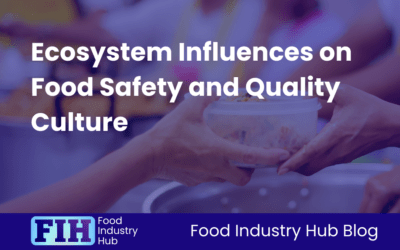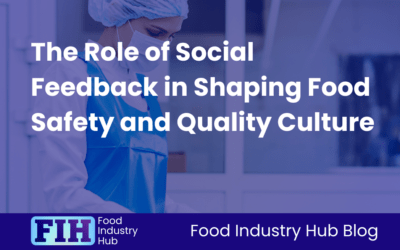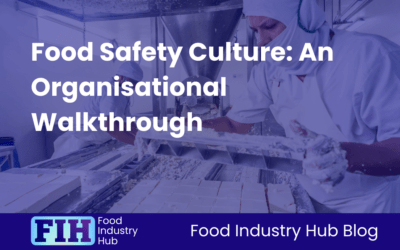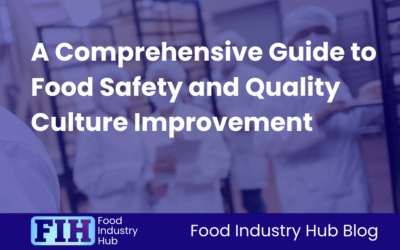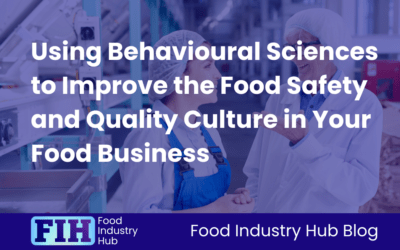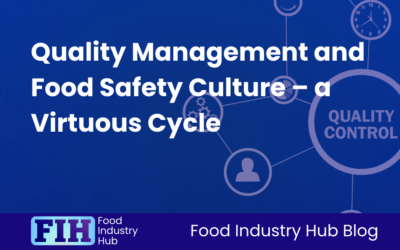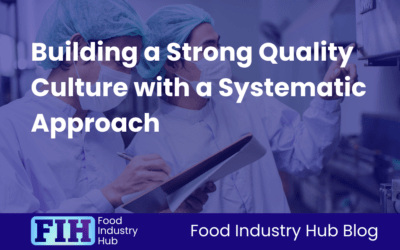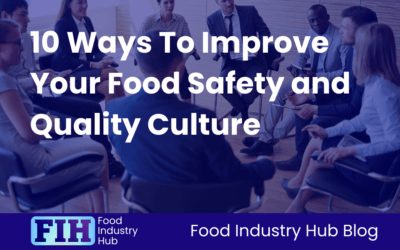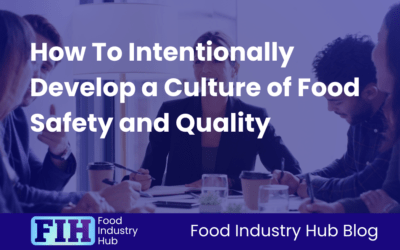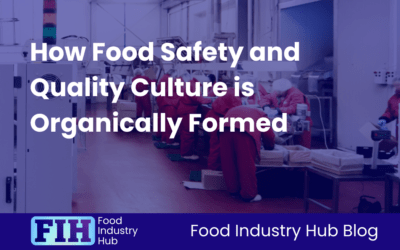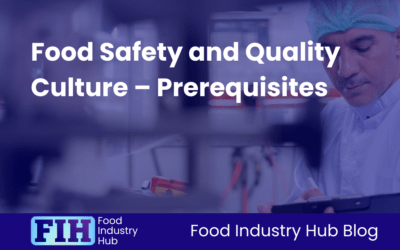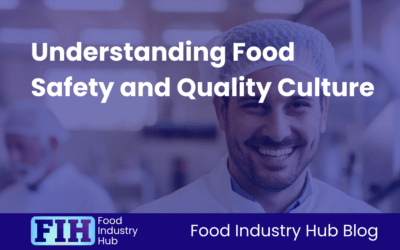IntroductionWhat truly defines your company’s culture? While policies, procedures, and training play a role, the foundation of a strong food safety and quality culture lies in the values your business upholds. These values shape the way decisions are made, the...
The Food Industry Hub Blog
Food Safety and Quality Culture
The Food Industry Hub Blog
Food Safety and Quality Culture
Food Safety and Quality Culture: Fundamental Principles
IntroductionCreating a culture of food safety and quality is essential for any food manufacturing business aiming to maintain high standards, protect consumer health, and uphold its reputation. It involves more than just meeting regulatory requirements; it requires a...
Values, Attitudes, and Behaviours: A Culture of Safety and Quality
IntroductionThe culture of safety and quality within your organisation is not just dictated by policies and procedures; it's shaped by the values you espouse, the attitudes you cultivate, and the behaviours you reward. So how do you ensure that the values you've put...
Discussion: Food Safety and Quality Culture
IntroductionOn Friday 30th August 2024, Food Industry Hub’s Duncan Lacey joined Bryan Armentrout on The Food Leadership Group Food Safety Chat Live! to discuss food safety and quality culture. You can watch a recording of the chat here, and the transcript is shown...
Using Peer Pressure for Food Safety and Quality Culture Development
IntroductionConsider the power of positive peer pressure in shaping the culture of food safety and quality in your organisation. You've seen how it can sway behaviours in other aspects, but have you ever considered harnessing it to encourage adherence to food safety...
Ecosystem Influences on Food Safety and Quality Culture
IntroductionIn a food manufacturing business, the ecosystem surrounding food safety and quality is a multifaceted web of influences. From suppliers ensuring top-notch materials to consumers demanding transparency, each stakeholder adds a crucial layer to the culture....
Sign-up for the Food Industry Hub Mail Service
We regularly produce new content for food industry professionals, and the Food Industry Hub Mail Service is the best way to stay up to date with the latest additions.
Signup today to be added to the Food Industry Hub mailing list.
The Role of Feedback in Food Safety and Quality Culture
IntroductionIn the complex landscape of food manufacturing, the influence of social feedback on shaping food safety and quality culture cannot be overstated. Your organisation's success in maintaining high standards hinges on how effectively social interactions...
Food Safety Culture: An Organisational Walkthrough
IntroductionFood safety and quality culture is not separate to organisational systems or business structure. In reality, organisational culture is a characteristic -and expression- of the organisation, and manifests throughout all levels. In this post, we'll explore...
Applying Metrics for Food Safety and Quality Culture Measurement
IntroductionCompliance depends on objective evidence. Without objective evidence, it is impossible to demonstrate compliance or non-compliance at audit. The notion of compliance is only meaningful if it can be challenged and measured. Today, various compliance...
A Comprehensive Guide to Food Safety and Quality Culture Improvement
IntroductionIn this post, we’ll discuss the nature of food safety and quality culture and how it’s defined. We’ll touch on measurement/evaluation and how best to assess your food safety and quality culture. We’ll also go on to explore some of the ways you can improve...
How To Achieve Culture Change in Your Food Manufacturing Business
IntroductionSo, you've noticed that your food manufacturing business could use a culture revamp. But how do you actually make that happen? It's not just about setting goals and hoping for the best. There's a strategic process involved that requires commitment and...
Leveraging Game Theory Principals to Improve the Food Safety and Quality Culture in Your Food Business
IntroductionIn food manufacturing, developing and maintaining mature culture of food safety and quality culture is of the utmost importance. That's where leveraging game theory principles comes into play. Game theory addresses interactions between individuals and/or...
Using Behavioural Sciences to Improve the Food Safety and Quality Culture in Your Food Business
IntroductionIn thinking about the food safety and quality culture within your organisation, have you ever considered the impact of behavioural sciences? Imagine the potential of tapping into human behaviour patterns to create a workplace environment that naturally...
Quality Management and Food Safety Culture – a Virtuous Cycle
IntroductionFood safety and quality are of paramount importance for food manufacturers, as they directly impact the health and well-being of customers, as well as the reputation and success of the company. Implementing a robust food safety and quality management...
Data Processing for Food Safety and Quality Culture Development
IntroductionThere’s a lot about culture that seems very subjective and removed from objective data, but data interactions can be among the most powerful tools organisations have when making strategic interventions to their food safety and quality culture. This post...
Building a Strong Quality Culture with a Systematic Approach
IntroductionMany compliance standards now include requirements for food businesses to demonstrate the development and improvement of their food safety and quality culture. This post explores systemic influences on culture and offers suggestions for how to promote your...
10 Ways To Improve Your Food Safety and Quality Culture
IntroductionFood safety and quality culture can be a difficult thing to address because of the intangible nature of the topic. In this post, we offer actionable suggestions for initiatives that you can use to develop a culture of food safety and quality.This post is...
How To Intentionally Develop a Culture of Food Safety and Quality
IntroductionThis post is intended to provide a framework that you can use to assess and improve your food safety and quality culture. We’ll explore how to align values and encourage their adoption. We’ll also discuss ways to address conflicts for mutual benefit. All...
How Food Safety and Quality Culture is Organically Formed
IntroductionEvery organisation has a food safety and quality culture, whether it has been intentionally shaped or allowed to develop organically. It’s the nature of the culture, rather than its existence, in question here. A fragmented or conflicted food safety and...
Food Safety and Quality Culture – Prerequisites
IntroductionFood safety and quality culture can seem like a challenging subject. There’s something intangible about it that can make it difficult to identify how to approach - let alone improve – the culture of safety and quality. There are a few conditions that need...
Understanding Food Safety and Quality Culture
IntroductionFood safety and quality culture is an interesting subject, and distinct from many operational concerns in that it directly addresses psychological topics – which is unfamiliar terrain for many in the food industry. In this post, we’ll look at...


